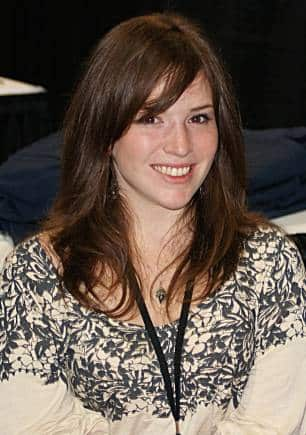



The memoir boom shows no signs of slowing down, with several recent titles appearing on best-of-2022 lists. These include Hua Hsu’s Stay True, Javier Zamora’s Solito, Kathryn Schulz’s Lost and Found, and many more.
One of the most striking this year is Kate Beaton’s Ducks, a recollection in the form of a graphic memoir. It belongs in the company of others such as Alison Bechdel’s Fun Home, Roz Chast’s Can’t We Talk About Something More Pleasant? and Marjane Satrapi’s Persepolis.
 Beaton’s earlier webcomic, Hark! the Vagrant, won acclaim for its light-hearted treatment of historical figures and events. Ducks features the same casual and unpretentious style, with only the necessary strokes and characters in each frame. Such black-and-white simplicity of expression makes the subject matter even more poignant.
Beaton’s earlier webcomic, Hark! the Vagrant, won acclaim for its light-hearted treatment of historical figures and events. Ducks features the same casual and unpretentious style, with only the necessary strokes and characters in each frame. Such black-and-white simplicity of expression makes the subject matter even more poignant.
The book deals with the period in Beaton’s life when she was employed in the infamous oil sands of Alberta, Canada, which has been referred to as one of the world’s largest industrial projects. Here, crude oil in the form of bitumen is mined from vast pits, the remnants of boreal forests. The project has long been opposed by environmentalists and indigenous activists because of its environmental impact and high emissions.
This region is where Beaton, a new arts graduate, arrives in 2005 from her home in Cape Breton. “I learn, by twenty-one, that any job is a good job. Even a bad job is a good job; you’re lucky to have it,” she confesses. After all, work opportunities are scarce, and she has debilitating student debt to repay.
Beaton starts out as a “tool crib,” a person responsible for distributing implements to oil workers and keeping an inventory of them. For the next two years she works on different sites, living in both temporary work camps and the city of Fort McMurray in northeast Alberta.
The area is often portrayed by National Geographic and other such periodicals through wide-lens high-angle views of natural despoilation. Beaton’s focus is on the human side, with enclosed spaces where individuals make the most of the hands they have been dealt. To counterbalance this, there are images of wintry nightscapes as well as the Northern Lights.
“Everyone's oil sands are different,” she writes in an afterword, “and these were mine”. As one of the few women employed in the region, she had to handle punishing hours, as well as put up with the behaviour of itinerant male workers in a hypermasculine environment.
This involved lewd stares, sexist comments and, on at least one occasion, outright assault. The latter is depicted via four successive all-black frames that are harrowingly effective.
 Beaton. (Wikimedia Commons)
Beaton. (Wikimedia Commons)The strength of Ducks is that Beaton portrays people as not simply good or bad, but individuals transformed by institutional practices. “Work camps,” she writes in the afterword, “are a uniquely capsuled-off society, a liminal space, and analogue for so many other male-dominated spaces”. Misogyny apart, drug and alcohol abuse are common ways to ward off loneliness and boredom.
Hers is an attitude that seeks to understand rather than judge. The result: a portrait that’s sometimes quirky, often wry, and always perceptive.
The title is a metaphor taken from a news report about the deaths of hundreds of migrating ducks in a sludge pond of the oil sands. Beaton also makes symbolic use of the plight of other animals: a buffalo in a reclaimed pasture shows up, as does a nocturnal, one-legged fox.
The months go by, and she manages to pay off her student loan, but not without increasing unease at working conditions and the impact of the oil sands. This is brought home by watching a YouTube video of a speech by Celina Harpe, an elder from the indigenous Cree community of Fort McKay.
“First Nation people’s lives pay for the price of the oil they take out of our land here,” says Harpe, in a powerful message. “They spoil and ruin our water, the air, pretty much everything else…As long as they get their money, they don’t care how many of us they kill off.” Words that indigenous communities everywhere will be able to relate to.
Beaton’s book uncovers the impact of a rapacious capitalist system with lucidity and grace. What is extracted is not just oil but also the human capacity for living in harmony with one’s surroundings.
Discover the latest Business News, Sensex, and Nifty updates. Obtain Personal Finance insights, tax queries, and expert opinions on Moneycontrol or download the Moneycontrol App to stay updated!
Find the best of Al News in one place, specially curated for you every weekend.
Stay on top of the latest tech trends and biggest startup news.